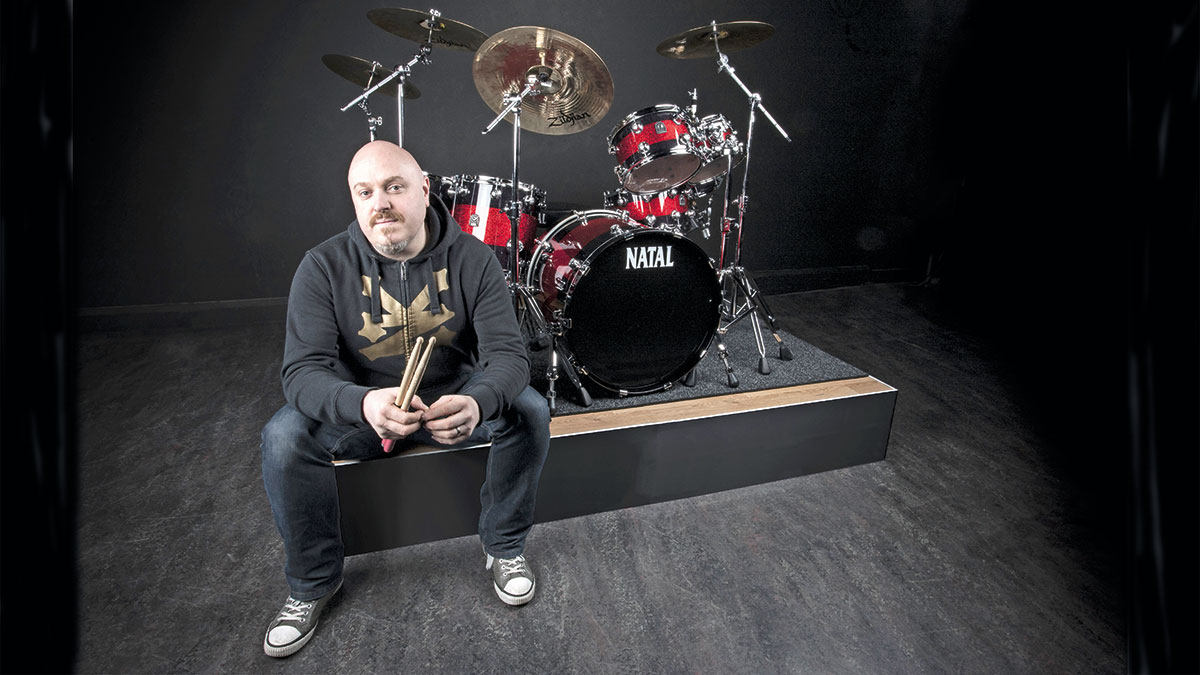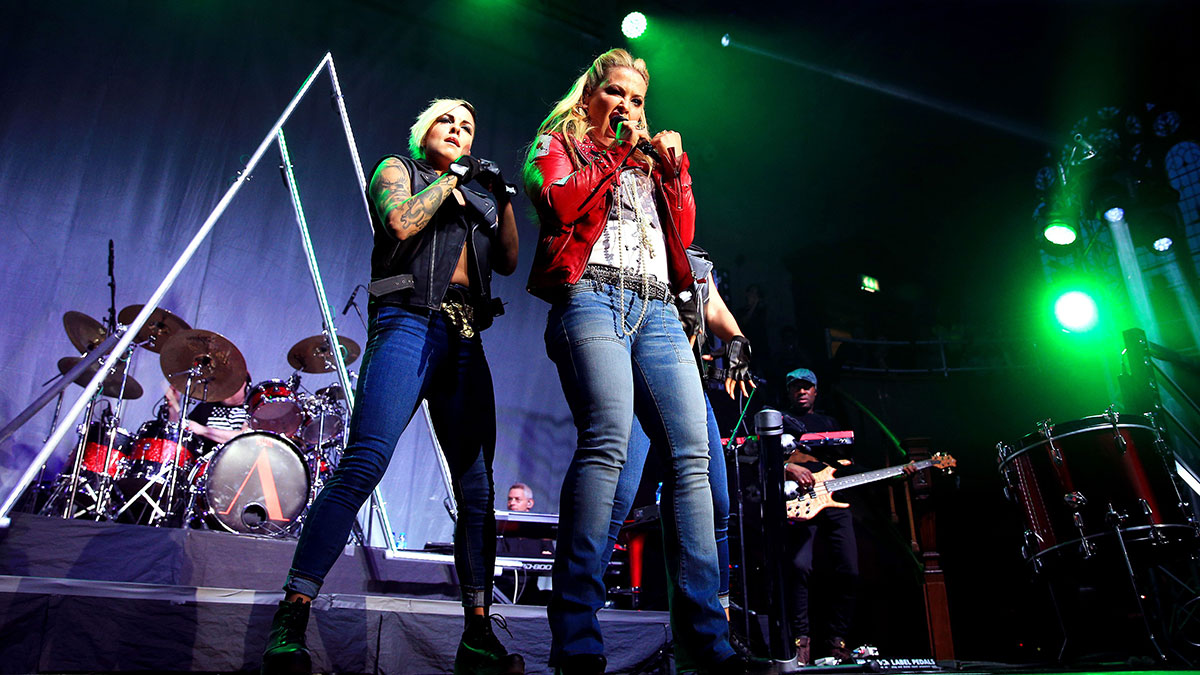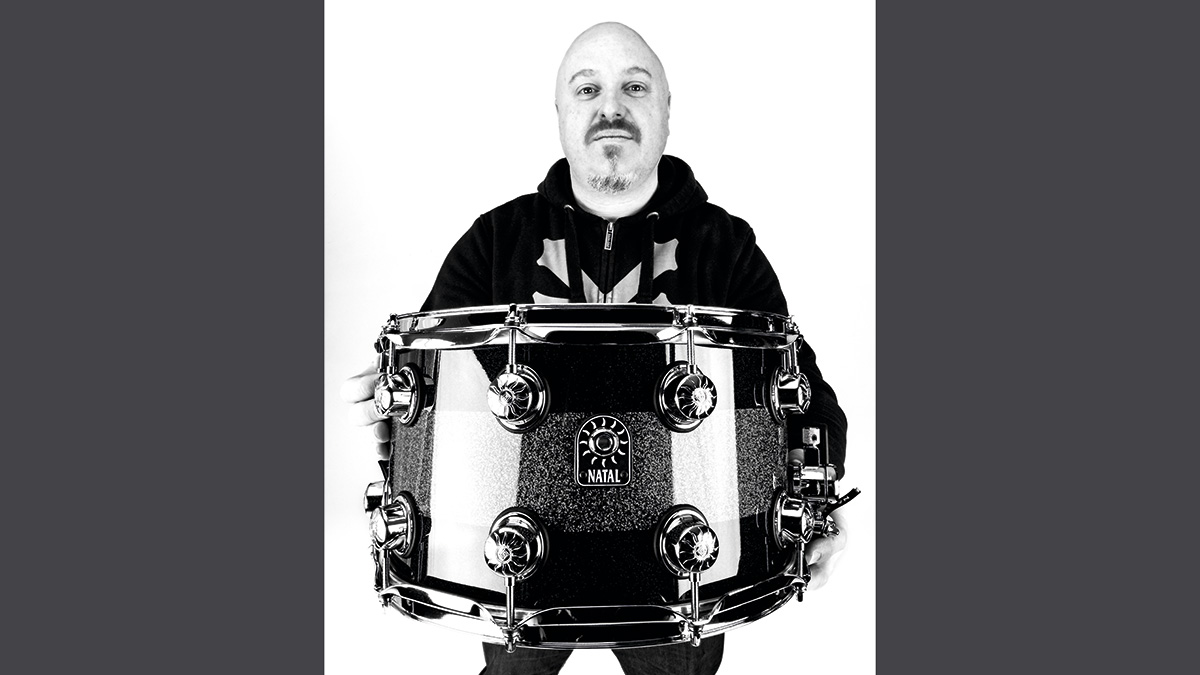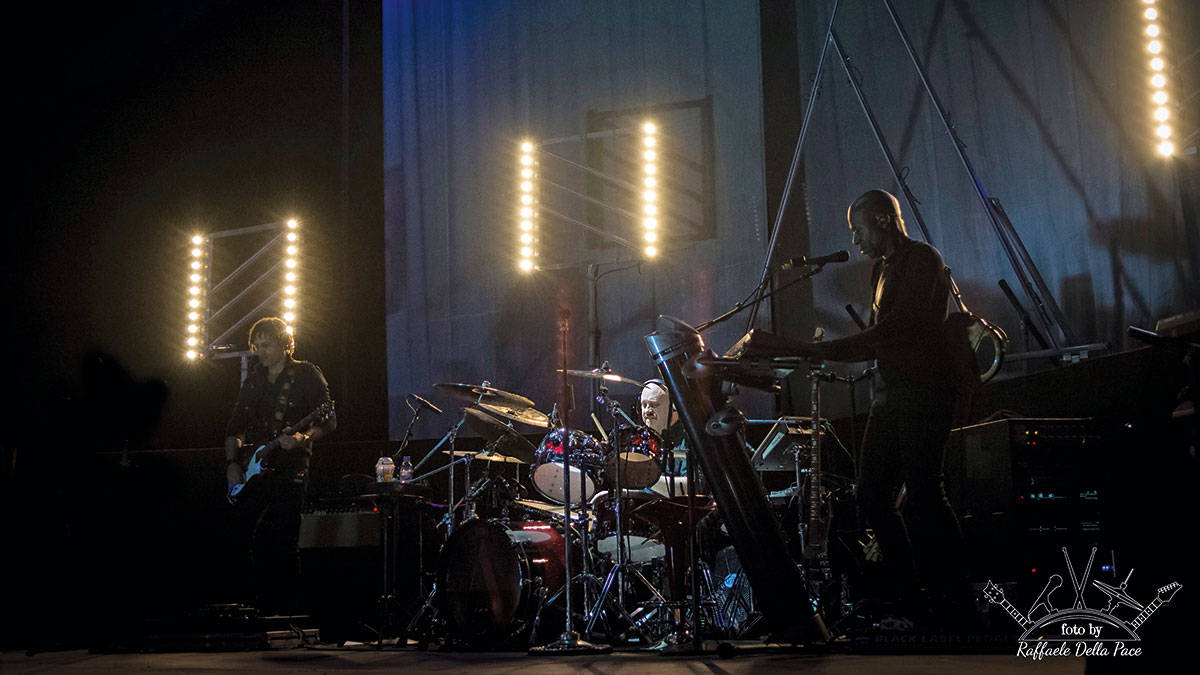Steve Barney reveals all on the punishing life of a session musician
Anastacia drummer on the harsh realities of session life

The agony and ecstasy of session life
Back in early 2012 life was pretty darn sweet for Steve Barney.
Packing out arenas with The Wanted, who themselves were duking it out with One Direction for boy-band world domination, Barney was sat proudly atop the Brit session drumming tree.
It was a well-deserved position for Barney, the Norfolk born and raised drummer who moved to Liverpool in the mid ’90s to join fast-rising rockers Bullyrag. When that band came to an end Barney stuck to his guns and forged himself a successful session career, backing the likes of Annie Lennox, Jeff Beck, Anastacia, Atomic Kitten and, bringing us back to 2012, The Wanted.
“That was a really successful UK arena tour, it was great to be part of that,” says Steve discussing The Wanted arena tour during which this writer last spoke to the likeable sticksman. “The previous year we did a theatre tour and we were on the rollercoaster heading upwards.”
Steve and the band may have been on a definite upward curve, but the drummer’s life was about to take a dramatic turn as the record company pulled the rug from beneath his feet. As The Wanted jetted off for a tour of the states the label decided that Steve and his fellow live bandmates would stay at home, with a US band (featuring Thursday’s Tucker Rule on drums) taking over.
What followed was three years of turbulence for Barney which featured personal trauma, cancelled tours and, we’re pleased to report, a triumphant return. As we speak to Barney he is preparing to head out on a mammoth tour with pop titan Anastacia, and we’re eager to get to grips with the crazy world of a Brit session veteran.

"I played Hyde Park with The Wanted...a week later I got the email saying our services would no longer be required."
So, just what happened with The Wanted?
“From a record company view I guess, and this is happening across the board, artists are picking up musicians in the countries that they’re going to rather than taking their own bands. What happened to me and a couple of other guys in The Wanted band is that they went to America and picked up another band and then with the gradual success of what they were doing over there they stuck with that American band.”
That must have been a huge kick in the teeth.
“They did a big American tour with a US band which kind of, to be honest, felt a bit of an insult at the time but in retrospect you can understand why these things happen. That doesn’t make it feel any less painful though. When you’re working with an artist and you’re on the way up you want to be there for the longevity of it. They came back to the UK and we did some big shows, we did shows with Westlife and the final show I did with The Wanted was at Hyde Park. About a week later I got the email saying our services would no longer be required. I kind of expected it but that didn’t soften the blow. You have to take these things on the chin.”
You take it on the chin but isn’t a little loyalty expected on both sides?
“Ultimately, we’re hired guns, you’re there to do a job. We played great, but I’m well aware for any gig I can’t do there’s a line of drummers around the corner. We’re not the only choice and we can only do the best we can do. It wasn’t a musical decision, it was financial, it was removing the costs of Visas and things like that, and maybe the dollar to the pound plays a part. That happens and I got past it.”
"I got the email saying our services would no longer be required. I kind of expected it but that didn’t soften the blow."
Where did you go from there?
“I did a nice dep trip to Malaysia with Ronan Keating. That softened the blow being somewhere beautiful on a beach playing with Ronan. My friend Spike [Edney] has a band called the SAS Band, Spike was Queen’s touring keys player. It’s a high-end corporate band and I’ve done a few shows with them. I got up and played a few songs at a charity show with them, Brian May and Midge Ure. They were one-off shows but it softened the blow of what happened with The Wanted.”
Were you tempted by the lower-end corporate route playing parties and weddings?
“I’ve never gone down the corporate route, and that’s not through snobbery. I don’t really want to do weddings and corporate gigs, but I completely respect anyone that does anything at all to put meals on the table. But that’s not to say that it isn’t a credible and financially rewarding path. Without going into numbers I know there’s corporate gigs out there paying more than people are getting for playing the O2 Arena. That’s shocking to say but it’s true.”

"I lost a bit of love for music..."
For a while you were without a gig?
“After The Wanted I had a real lull in work. A couple of things happened in my life which affected that. My long-term gig is with Anastacia and sadly she got cancer for the second time so rightly and completely understandably they pulled all of the touring that we had coming up so she could have treatment. My heart completely went out to her. I’m so thrilled that she’s now completely fine.”
Another example of losing a gig for completely non-musical reasons...
“It’s called life! I’m not being cheeky saying that, it really is life. Nobody knows what’s around the corner. Anastacia is a phenomenal singer but she’s also a real person and unfortunately she’s been affected by this awful disease twice but she has pulled through twice from it.
“You can’t rely on particular jobs but at the back of your mind you are hoping that it will work out, so that could have thrown me work-wise. and then out of the blue my father became very sick with leukaemia. Obviously that was massive on a personal level. I’ve lived in Liverpool since 1994 but my parents live in Norwich so they’re not around the corner. I was back and forth to Norwich on an alternate-week basis and I have a young child at home as well who would have been four or five at that time.
“My whole focus drew me away from music and looking for work because I was petrified for my dad and I wanted to support my mum. The phone went really quiet and the work wasn’t coming in but looking back if I had been in the midst of an 18-month tour at that time I would have been so emotionally pulled.
"I didn’t fall out of love with drums but if you’re doing the session scene for long enough, no matter how successful you are, it’s not consistent."
“I was thankful for that time to be there for my dad and happily he is now in remission. My mum and dad have been there for me so much and have always been so supportive to me as a drummer, I can’t thank them enough for that. My dad would leave a job he was supposed to finish to take me to a talent show. Long before The Voice I was doing talent shows all around Norfolk.”
What kind of impact did that personal issue have on your career?
“I lost a bit of love for music at that point. I didn’t fall out of love with drums but if you’re doing the session scene for long enough, no matter how successful you are, it’s not consistent. It’s like, and I’m not comparing myself to these guys, but it’s like Hollywood movie stars, they have a massive blockbuster and then a lull.
“I’m not a Hollywood blockbuster, trust me, I’m just sat here in my two-bedroom house, but I have had some great gigs but things aren’t always constant. Thankfully for me I’ve always been careful to save for a rainy day to tide me over. That’s something musicians aren’t taught, if there’s not a constant income then you have to be very mindful of when you do earn money, make sure you’ve got enough to keep you afloat until the next job.”

"Motivation for me is really basic - I love music."
You then joined back up with Anastacia, but there was still a spanner to be thrown into the works
“We finally got into the main tour for the Resurrection album and again life kicked in. We started the tour and it was fantastic. We were about a week into the tour and I think we were in Milan and Anastacia lost her voice. She came on stage one night and her voice wasn’t there. We got through the show but I think she had ripped her vocal cords and under doctor’s orders she couldn’t sing for three months. Seven days into a tour we were on the next flight home to the UK. That was unexpected.”
How do you deal with something like that, something completely out of your control and several months of work is gone in an instant?
“Especially mid-October, any tour happening has already gone. Landing anything other than a pantomime at that time of year is unlikely and I wasn’t able to land another gig at that time. But, the tour was rescheduled in January and we carried on until September really.”
"I’m not walking around like Billy big-balls thinking I’m the best drummer, I’ve had insecurities."
Did Anastacia bring you out of that career lull?
“Definitely, without a shadow of a doubt. I was still playing but getting that call gave me a lift. I’m not walking around like Billy big-balls thinking I’m the best drummer, I’ve had insecurities. I’ve played many stadiums and arenas but I live in a humble abode. I’ve played huge places with incredibly successful people but that isn’t my lifestyle. Making a living from music is incredibly hard. But I moved to Liverpool to play music professionally when I joined Bullyrag in May 1994 and here we are 22 years later and I’m still playing music.”
So, 22 years on, what continues to motivate you in an increasingly brutal profession?
“Motivation for me is really basic – I love music. Young drummers coming up, if they don’t truly love it then they shouldn’t do it. I didn’t get into playing drums to make money, I didn’t set out to be a session drummer that’s just the way things panned out. My band broke up in Liverpool and I then had an opportunity to do a pop gig with Atomic Kitten and that led me down a different path. As I get older my motivation comes from wanting to look after my family, but I’m still driven by my love of playing music.”
Rich is a teacher, one time Rhythm staff writer and experienced freelance journalist who has interviewed countless revered musicians, engineers, producers and stars for the our world-leading music making portfolio, including such titles as Rhythm, Total Guitar, Guitarist, Guitar World, and MusicRadar. His victims include such luminaries as Ice T, Mark Guilani and Jamie Oliver (the drumming one).
